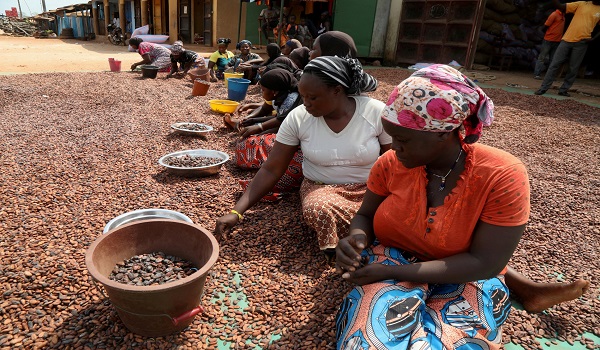The global cocoa market is experiencing a significant upheaval as cocoa prices have surged to unprecedented levels, creating a complex scenario for various stakeholders. While major chocolate manufacturers are reaping substantial profits, cocoa farmers, especially in Africa, are not seeing commensurate benefits, highlighting a disparity in the distribution of gains.
Over the past year, cocoa prices have seen a dramatic increase, attributed to factors such as adverse weather conditions, supply chain disruptions, and increased demand. This price surge has led to higher profits for chocolate companies and intermediaries in the supply chain. However, the financial windfall has not trickled down to the farmers who cultivate the cocoa, many of whom continue to struggle with low incomes and challenging working conditions.
Major chocolate manufacturers, including industry giants, have reported record earnings, benefiting from their ability to pass on the increased costs to consumers. The higher retail prices of chocolate products have not deterred consumption, as global demand for chocolate remains robust. This situation has allowed these companies to maintain their profit margins and, in some cases, even expand them.
On the other hand, cocoa farmers, primarily located in West Africa, which produces over 70% of the world’s cocoa, have seen little improvement in their livelihoods. Despite the higher market prices for cocoa, many farmers receive only a fraction of the final price due to the structure of the supply chain, which is dominated by a few large corporations. This has led to increased calls for fair trade practices and better support for farmers to ensure they receive a more equitable share of the profits.
The disparity in earnings is further exacerbated by the lack of infrastructure and resources available to cocoa farmers. Many operate small farms with limited access to modern agricultural techniques and financial services, making it difficult for them to increase their productivity or negotiate better prices for their cocoa beans. The ongoing challenges of climate change, which affect cocoa yields, also add to their difficulties.
Efforts to address these issues have been ongoing, with various initiatives aimed at improving the conditions for cocoa farmers. Organizations advocating for fair trade have been pushing for policies that ensure a more balanced distribution of profits within the cocoa supply chain. These initiatives emphasize the importance of sustainable farming practices, better access to markets, and fair pricing mechanisms to support the economic well-being of cocoa farmers.
The current cocoa price surge has once again brought to light the need for systemic changes in the cocoa industry. While the financial gains are substantial for large chocolate companies, the true cost of these profits is borne by the farmers, who remain at the mercy of market fluctuations and structural inequities. Addressing these disparities is crucial for creating a more sustainable and fair cocoa market that benefits all stakeholders, from farmers to consumers.


